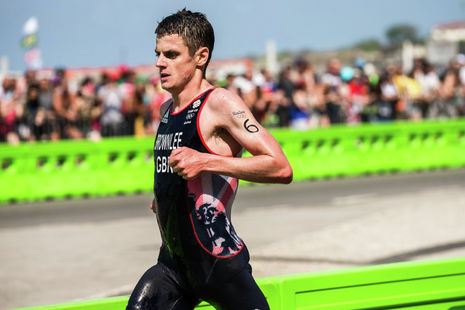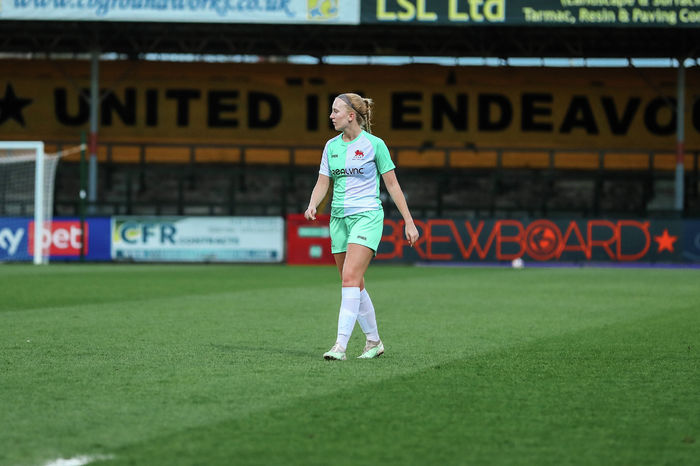Olympic triathlon champion Jonny Brownlee on 500km weeks and a remarkable career
Oscar O’Neill speaks to 6-time World triathlon champion and British sporting icon Jonny Brownlee

What is the best place you have ever competed, and why?
The best place I’ve ever raced was definitely London in the 2012 Olympics - the atmosphere was incredible and it was the only race I’ve ever been in where you couldn’t hear the loud breathing of the runners around you. The crowd was really loud and it was a bit weird because you heard lots of familiar voices. A few of my old teachers were there which was definitely a bit unexpected!
In terms of maybe the most scenic place though, it would have to be Kitzbühel in Austria. It was absolutely beautiful; we’d run around the lake in the morning and stay in the nice ski hotels. We’d also go to the casino with the free chips we were given which was a laugh. I’m not too sure the casinos were too pleased though as we had about 10 euros and they were more used to players playing with 10,000 euros!
From what age did you know that you wanted to have a career as a triathlete?
I knew that I wanted to go for it from about sixteen onwards - I’d been running, swimming and cycling for a while by then and wanted to go further. Seeing Alistair (Brownlee) go to Beijing in 2008 and lead 80% of the race there really inspired me, and there was definitely a part of me that saw my older brother do that and thought: ‘If he can do it why can’t I? ’.
I mean, at the end of the day, he did lots of his training through cycling to school and running around at lunchtime - even having the odd fish and chips too. He seemed relatively normal and made the prospect of competing more realistic. You know, when we were growing up all the athletes that won the triathlon were from Canada, New Zealand and Australia, and doing training camps in South Africa and places like that. The fact that I had an older brother from Leeds who was competing with these guys was really motivating.
“There was definitely a part of me that saw my older brother and thought: ‘If he can do it why can’t I? ’”
What would you have done if you had not been a triathlete, and why?
That’s a good question. I mean both my parents were doctors and Alistair did medicine for a term at Girton, but that wasn’t really my thing. I did History at Leeds because that was a subject which allowed me a level of balance, so I could do sport and study at the same time. To answer your question properly though, I would probably have gone to Durham to do History and then a Law conversion.
What advice would you give to any young person trying to reach the very highest level in their respective sport?
I know people say it a lot but consistency is key. It really is about turning up day after day. I suppose as well that having good people around you is also important. Train with good people so you’re not always by yourself. They might not necessarily push you as much, but you don’t want to train with your competitors in case they learn your preparation secrets. Also your coaches are really important too, and you want coaches who genuinely care. A good way of thinking about it is if Team GB all of a sudden ran out of money, would your coach still be there to help you, rather than just seeking to progress their own careers?
What are your plans for retirement? There have been examples of elite sportsmen such as Bradley Wiggins struggling with that sudden change from the huge highs of being an Olympic athlete to being more ‘normal’? How will you cope with this change, and would you consider going into punditry?
Bradley Wiggins is perhaps a bit of a unique example because he had issues with alcohol and some difficult family relationships, but I get the point. I suppose that the honest answer is that I don’t know. I have some projects, such as the Brownlee Foundation which has been going really well. Recently we had our 75,000th child do a triathlon through the foundation which was fantastic, so I’d be keen to keep developing that.
But apart from that I really don’t know at the moment, I’m just looking forward to spending more time with my family. I’m not too sure about punditry, my strong Yorkshire accent probably isn’t too cut out for mass media, but then again Roy Keane seems to be doing well for Sky with his Irish accent. You also have to balance the idea that you don’t want to be lingering around the sport like a bad smell after retirement and have people saying “Why is he still here?” When I retire, I’ll need to make a decision about whether I want to keep being around races or not.
“My strong Yorkshire accent probably isn’t too cut out for mass media!”
During your days as an Olympian, when training what did your daily schedule look like?
Every day was different but we would definitely keep ourselves active throughout the week. I mean, in one week for example, we’d do 500k worth of bike rides and then around a 5k swim every day as well as a bit of running. So it was quite relaxing really. Alistair was a bit different to me though and often went a bit further being the older, more confident brother.
You know, he had coaches telling him that if he kept on going at his current rate when he was 20-21 he’d burn out in a couple of years, so that always played on my mind. Everyday though we’d keep ourselves busy with swimming in the morning and then a bike ride, and then a run usually in the evening.
What was the toughest race you have ever done?
Definitely Cozumel where I basically passed out, you can’t go much harder than that! I mean the conditions there were brutal, it was stupidly hot and humid, and I was just done. It was around 35-36 degrees and 80% humidity which is just horrible to race in - not ideal at all. I mean even at breakfast when we were staying there, we had to cross over the road for it, and by the time we’d done that, we were drenched in sweat!
London in 2012 as well was quite tough. I remember that I pushed myself a lot in that race as I knew it was a once in a lifetime opportunity to win a medal at a home Olympics. I clearly remember before the race having a cup of tea with Alistair and saying we were going to just go for it.
If you could have done one thing differently in the course of your career, what would it have been?
If I could have done something differently in my career, it would have been to have more self-confidence and believed in myself more. I remember before Rio 2016, I was better than Alistair and was dropping him consistently in training. But when the race came in Rio I made a mistake.
Both me and Alistair were out in front and we were racing side by side. Both of us at the time were worried about a French athlete called Vincent Luis, and with that in mind I said to Alistair that we should pace ourselves so one of us doesn’t blow up. Alistair took that as a sign of weakness and immediately thought, I’m going to drop him (Jonny). I regret saying that because that gave him the psychological advantage, and eventually he won the race when I knew that I potentially could have done it.
 News / Judge Business School advisor resigns over Epstein and Andrew links18 February 2026
News / Judge Business School advisor resigns over Epstein and Andrew links18 February 2026 News / Hundreds of Cambridge academics demand vote on fate of vet course20 February 2026
News / Hundreds of Cambridge academics demand vote on fate of vet course20 February 2026 News / Petition demands University reverse decision on vegan menu20 February 2026
News / Petition demands University reverse decision on vegan menu20 February 2026 News / CUCA members attend Reform rally in London20 February 2026
News / CUCA members attend Reform rally in London20 February 2026 News / Gov grants £36m to Cambridge supercomputer17 February 2026
News / Gov grants £36m to Cambridge supercomputer17 February 2026










